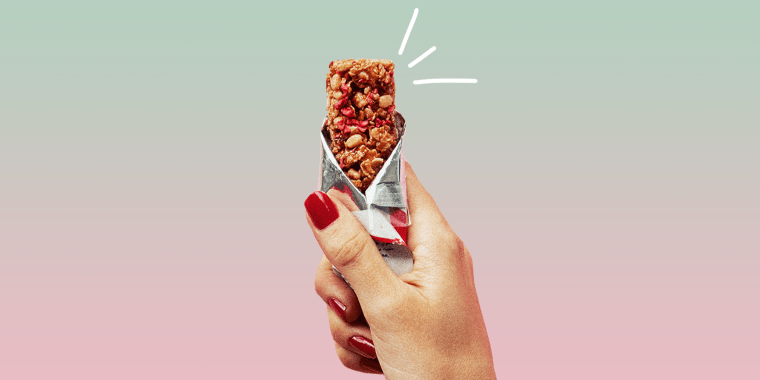Welcome to Start TODAY. Sign up for our Start TODAY newsletter to receive daily inspiration sent to your inbox — and join us on Instagram!
We've all been there: It's time to get a workout in — but your rumbling stomach says it's time to eat. You want to have enough energy to get in a solid exercise session, but worry that eating something might make you nauseous or uncomfortable. Is it OK to exercise after you eat or should you fast until your workout is over?
Finding the best diet and fitness routine for your schedule is hard enough, let alone figuring out how to space them so that you aren't either starving or too full to be at your physical peak. All of those factors play into the question: How long after eating can you exercise?
Unfortunately, there's not a one-size-fits-all answer to this question. It depends.
How long after eating can I work out?
Exercising on a full stomach can lead to some uncomfortable symptoms like reflux, hiccups, nausea and vomiting, Dr. Daniel Vigil, associate clinical professor of family medicine and orthopedic surgery at the David Geffen School of Medicine at the University of California, Los Angeles, tells TODAY.com. But that may not be the case for everyone. There are some people who can exercise after eating a big meal and have no issues, Vigil adds.
However, research does show that eating before a workout is not ideal. Beyond the possibility of experiencing uncomfortable digestive symptoms, a study published in The American Journal of Physiology found that men who exercised without eating beforehand burned more fat.
The best time to work out is before you eat, Vigil says, as a post-exercise nutrition program helps recovery and minimizes muscle damage. However, if eating beforehand it what works best for your schedule, Vigil suggests waiting an hour or two after your meal before exercising to allow the stomach to empty out.
Of course, that rule changes if you’ve overeaten.
“If you’re going to sit down to a Denny’s Grand Slam Breakfast, it’s going to be in your stomach for a lot longer,” Leslie Bonci, a registered dietitian and owner of Active Eating Advice, a nutrition consulting company in Pittsburgh, tells TODAY.com. “My general rule of thumb for my athletes is to wait an hour before exercising. And you want to keep the amount of food to about the size of your fist, not the size of a football.”
What to eat before a workout
If you do eat before a workout, Bonci suggests tailoring what that meal looks like to the type of exercise you’ll be doing. Foe example:
- Running: Drink about 20 ounces of liquid an hour beforehand and eat something small and carbohydrate-based, such as a granola bar, a banana or some dry cereal.
- Hot yoga: “You don’t want to start dehydrated,” Bonci says. “It’s not so energy expending as running, so you could do 8 ounces of juice and 12 ounces of water.”
- Strength training: For any type of weight lifting, it’s critical to have some protein, says Bonci. "I’m not talking about a pound of bacon and a dozen eggs. The maximum should be 20 grams of protein. That could be 8 ounces of yogurt or 6 ounces of yogurt with some cereal on top of it,” she says.
- Swimming: Swimmers should get a combination of protein and carbohydrates. “You might try a bagel thin or sandwich thin with two eggs and a little cheese,” she suggested. “It’s not a huge volume, but it provides some protein and carbohydrates.”
- Biking: Bikers “need to take the gut into account and think about what it’s going to feel like to be crouched over for a long time,” Bonci says. “You may not feel comfortable with an omelet in your stomach and even a six-inch sub may be pushing it.”
If you’re hoping to get a little extra fuel in the tank right before working out, or, say, between two halves of a soccer game, Vigil says it’s generally OK to boost your energy with a 100-200 calorie sports bar.


